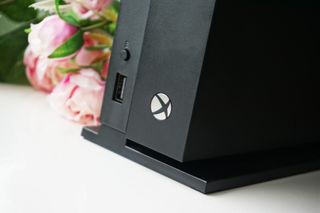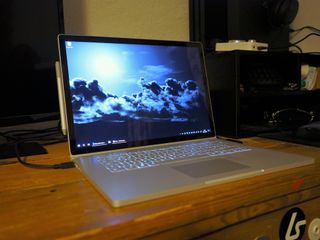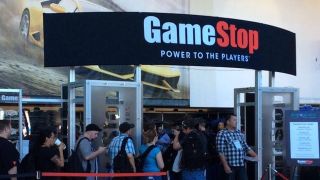5 reasons why Xbox hardware isn't going away
Every time there's major change in the industry, doom merchants come along and begin proselytising the worst-case scenarios.

With Microsoft's push to cloud services, is their end game to bring about the end of Xbox console hardware altogether? Hardly.
Here are a few pretty simple reasons why Microsoft isn't bailing on Xbox home console hardware any time soon, and why you shouldn't "worry" about Project xCloud streaming services becoming the norm.
1. Look at Surface

For people who think Microsoft wants to get out of the hardware game, they should first and foremost look at the Surface range. The Windows laptop ecosystem isn't the powerhouse it once was, facing hard competition from Chromebooks and mobile devices in general, but there are still many big players in the space making tons of cash.
Between Surface and Xbox, Microsoft now boasts some of the most advanced industrial design capabilities on earth.
Dell, Lenovo, and HP are the most well-known PC brands out there, and even with them serving consumers and enterprise well with a huge array of PC options, Microsoft still pushes ahead with its Surface line.
Why does it do this? It's a simple case of because they can, and because there are advantages that come with marrying hardware and software under a single roof. Between Surface and Xbox, Microsoft now boasts some of the most advanced industrial design capabilities on Earth. Surface as a growing, billion-dollar business ultimately represents the best that Windows has to offer, showcasing all of Windows' features, whether it's touch, inking, and adaptive 2-in-1 hardware, Surface drives a "halo effect" over the Windows ecosystem, representing cool factor in a way that Dell, HP, and others, for the most part, don't. Xbox hardware will do the same for Xbox games, even if (big if) most people opt for Project xCloud streaming.
2. Retail still matters (for now)

While trends are moving towards digital, retail is still a big driver of both sales and general information, especially for parents picking up games for youngsters. Some people simply enjoy owning the physical disc as well, and there are things like collector's editions that many gamers take joy in possessing (myself included).
If Microsoft was to remove itself entirely from the retail scene, removing both hardware and physical games, it would dent people's exposure of the platform, and harm perception of Xbox as a gaming platform. Of course, there are some examples to the contrary. Steam was virtually able to single-handedly destroy the physical PC games market, shifting PC gamers over to more convenient digital options. PC hardware has generally followed suit too, with most modern laptops and PCs ditching optical disc drivers altogether, driven by a shift to online distribution not just for games, but for software, music, and movies. Microsoft doesn't have the luxury of Steam-level total platform dominance in gaming and to some degree still relies on physical retail distribution to help push its platform.
Get the Windows Central Newsletter
All the latest news, reviews, and guides for Windows and Xbox diehards.
3. Project xCloud is powered by Xbox hardware

Another pretty obvious reason why Microsoft isn't about to ditch Xbox home console hardware is the simple fact that Project xCloud itself is powered by Xbox home console hardware, converted into server racks.
Today, xCloud is powered by Xbox One S-level hardware capped at around 1080p, but as internet speeds increase, so too will the need to upgrade the server rack hardware, eventually to the Xbox One X level, then to Xbox Anaconda level, and so on. If Microsoft is already making server racks that support Xbox game delivery systems, why not simply package it and sell it as a home console as well? There's no real downside to doing both.
4. Licensing conundrum with xCloud

Although we have no real insight into the licensing deals developers sign with Xbox, owing to very, very strict non-disclosure agreements, it seems completely unlikely that Project xCloud will suddenly simply enable access to all of your digital Xbox games over night.
The benefits for developers of Project xCloud (if it works as intended, of course) are pretty obvious. Access to billions of additional mobile phone screens, lower-end PCs, smart TVs, and who knows, maybe even competing consoles like the Nintendo Switch, reaching far beyond the Xbox One console install base. The benefits are there, but that doesn't mean Microsoft won't have to renegotiate a lot of its licensing deals.
Game developers and publishers are undoubtedly going to want a say in how their IP and content is monetized and streamed, and even middleware and video game engine platform holders may disagree about the way their technology is being used. EA and other companies are also exploring building out their own competing streaming services, and may simply not want to support Project xCloud for a variety of reasons.
I expect Project xCloud will have a ton of content when it eventually launches later in 2019 or 2020, but the place to play every Xbox game will likely remain on the home console platform for the foreseeable future.
5. Serving all gamers

Philosophically, I simply believe that Microsoft wants to serve all of its customers, no matter how they want to play. The Xbox Adaptive Controller is an example of a device that Microsoft invested in, not to make heaps of cash, but simply because philosophically they want to serve gamers whoever they are, wherever they are, and whatever they need.
Xbox hardware will remain the best way to experience the ecosystem.
Microsoft has made no secret of the business reality of Xbox (and consoles in general), that you make money selling games, rather than consoles. However, if there are many millions of gamers who still want that home console experience, Microsoft would be handing them all over to Sony and other competitors if it opted to ditch that platform. This is all about giving gamers options, which is why Microsoft is exploring additional SKUs like the Xbox One S "All Digital Edition," without a disc drive, and subscription services like Xbox Game Pass.
Even if we end up in some bizzaro world where Project xCloud and similar streaming services become the preferred way to play games by most people, Xbox hardware will remain the best way to experience the ecosystem. It will feature the best, uncompromised visuals, perfect for those large TV sets in your living room. Just as Spotify and Netflix failed to kill CDs, movie theatres, Blu-ray, and live shows, Project xCloud won't kill Xbox hardware, simply because Microsoft will continue to want to offer the best experience possible.
Xbox hardware isn't going anywhere
The push to digital and streaming services may give console traditionalists cause for concern, but it really needn't. Even if you have no interest, and no inclination to give Project xCloud a try, the access to the ecosystem Microsoft could (potentially) bring to the platform will be unprecedented. And with that access comes more users, more cash, and more re-investment in content, such as games.
With Project xCloud comes more users, more cash, and more re-investment in content, such as games.
Microsoft and its real competitors, namely Google, TenCent, Amazon, and other large tech companies are gearing up for a streaming platform war in the near future. Opting to sit out this battle would harm Xbox in immeasurable ways, particularly if game developers see the benefits of ecosystems that provide this sort of delivery option, versus platforms that don't. Google is undoubtedly exploring partnerships with the big publishers for its own streaming platform, and will undoubtedly leverage its advantages, such as YouTube and Google search, to try and draw the casual audience away from consoles with the allure of pure convenience. The difference between Microsoft and Google, though, is that Google isn't beholden to the traditional console hardware platform, and would happy crush it into irrelevance if it meant more money for them.
Modern Microsoft has shown that it has a different philosophy. I firmly believe that despite not shying away from the coming streaming platform war with tech companies, Microsoft will continue to serve traditional gamers as long as there are enough users who still want that experience.

Jez Corden is a Managing Editor at Windows Central, focusing primarily on all things Xbox and gaming. Jez is known for breaking exclusive news and analysis as relates to the Microsoft ecosystem while being powered by tea. Follow on Twitter @JezCorden and listen to his XB2 Podcast, all about, you guessed it, Xbox!
